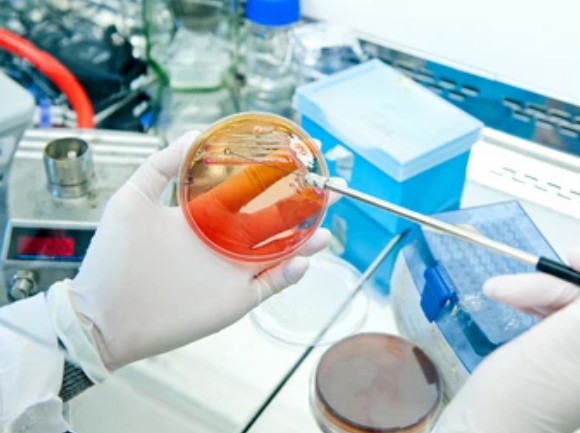Organic pollutants are natural organic substances in the form of carbohydrates, proteins, amino acids and fats, and certain other biodegradable synthetic organic substances. Organic pollutants are harmful to the environment and can spread along the food chain and endanger human health. The degradation of organic pollutants is an important issue affecting environmental safety and human health.
Lifeasible has been successfully applied to degrade organic pollutants such as phenol, chlorinated catechol, and naphthalene by cultivating E. coli engineered bacteria that can degrade organic pollutants using synthetic biology technology. It has provided effective technical support and theoretical guidance to maintain green agricultural production, the safety of human living environment, and food safety.

Biological method is to use the life activities of organisms themselves to degrade and utilize these pollutants and transform them into substances with simple structure and non-toxic or low toxicity, which is an environmental remediation technology with low cost, no secondary pollution, and complete remediation. The bioremediation of PAHs mainly refers to relying on microorganisms to degrade the toxic and harmful pollutants in the environment and decompose them into non-toxic and harmless CO2 and H2O. Still, the degradation rate of PAHs by wild PAH-degrading bacteria in the natural environment is low. We carried out the construction of E. coli genetic engineering strains by combining different degradation genes to construct an enhanced version of engineered strains that can degrade organic pollutants. The construction of E. coli genetically engineered bacteria can solve the problems such as the limitation of single degradation bacteria application and the competitive inhibition of mixed bacteria. Most importantly, it can substantially improve the degradation efficiency of organic pollutants.
We have promoted the development of genetic engineering by using the continuous progress of recombinant gene technology, which can effectively realize the construction of E. coli engineered bacteria with special functions. Since E. coli itself does not degrade PAHs, but as a typical Gram-negative bacterium, its genome and proteome information is more complete, and its metabolic pathways are clearer, and there are PAH degradation genes in some E. coli, the use of recombinant genes and other molecular biology means can effectively construct engineered E. coli that degrade organic pollutants.

Lifeasible has an excellent team of technical experts; we constantly update and optimize our experimental methods and techniques, aiming to provide the highest quality service to meet the needs of our clients for a wide range of projects and provide them with the fairest reliable experimental data results. Our personalized service is characterized by short turnaround times, cost-effectiveness, and accurate and responsive service. If you are interested in us, please feel free to contact us.
Lifeasible has established a one-stop service platform for plants. In addition to obtaining customized solutions for plant genetic engineering, customers can also conduct follow-up analysis and research on plants through our analysis platform. The analytical services we provide include but are not limited to the following:
STU-CRISPR System Improves Plant Genome Editing Efficiency
April 19, 2024
Application of Exosomes in Facial Beauty
April 12, 2024